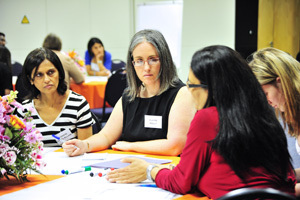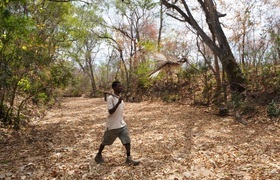ADAPT progressing, but facing challenges
16 January 2013 | Story by Newsroom
The ADAPT workshops, designed to engage UCT staff and students around transformation, inclusion and social justice, are presented by high-quality facilitators and are appreciated by the participants - but they aren't attracting participants in sufficient numbers.
The programme, which follows on the Khuluma and Mamela programmes, will take up to four years to reach its target number at the current 'take-up' rate. "If we want to cover 90% of staff, which I think is ambitious, it will take four years," said Professor Joha Louw-Potgieter at the presentation of a monitoring and evaluation report at the 2012 ADAPT Lekgotla on 11 December.
According to the report, only 17% of staff, some 526, attended the programme in 2012, with 61% having attended involuntarily.
Participation by academic staff was particularly low. Eighty percent of attendees were PASS staff and only 9% from academic staff.
In addition, only 13% of attendees were managers.
Of the participants, 31% were coloured, 24% were white, 13% were black and 4% were Indians.
"That is a threat to the programme: it is stereotyped as a programme for coloureds," said Louw-Potgieter.
On the bright side, the ADAPT workshops improved participants' knowledge of diversity and their intercultural competencies.
"ADAPT got people to engage with colleagues and more interested in reaching out," added Louw-Potgieter.
Glenda Wildschut, director of the Transformation Services Office, said that ADAPT is still in a learning phase.
The aim, she added, is to find a way in which all employees "can work together to make UCT a gentle place, a place we all want to be and contribute to".
 This work is licensed under a Creative Commons Attribution-NoDerivatives 4.0 International License.
This work is licensed under a Creative Commons Attribution-NoDerivatives 4.0 International License.
Please view the republishing articles page for more information.










